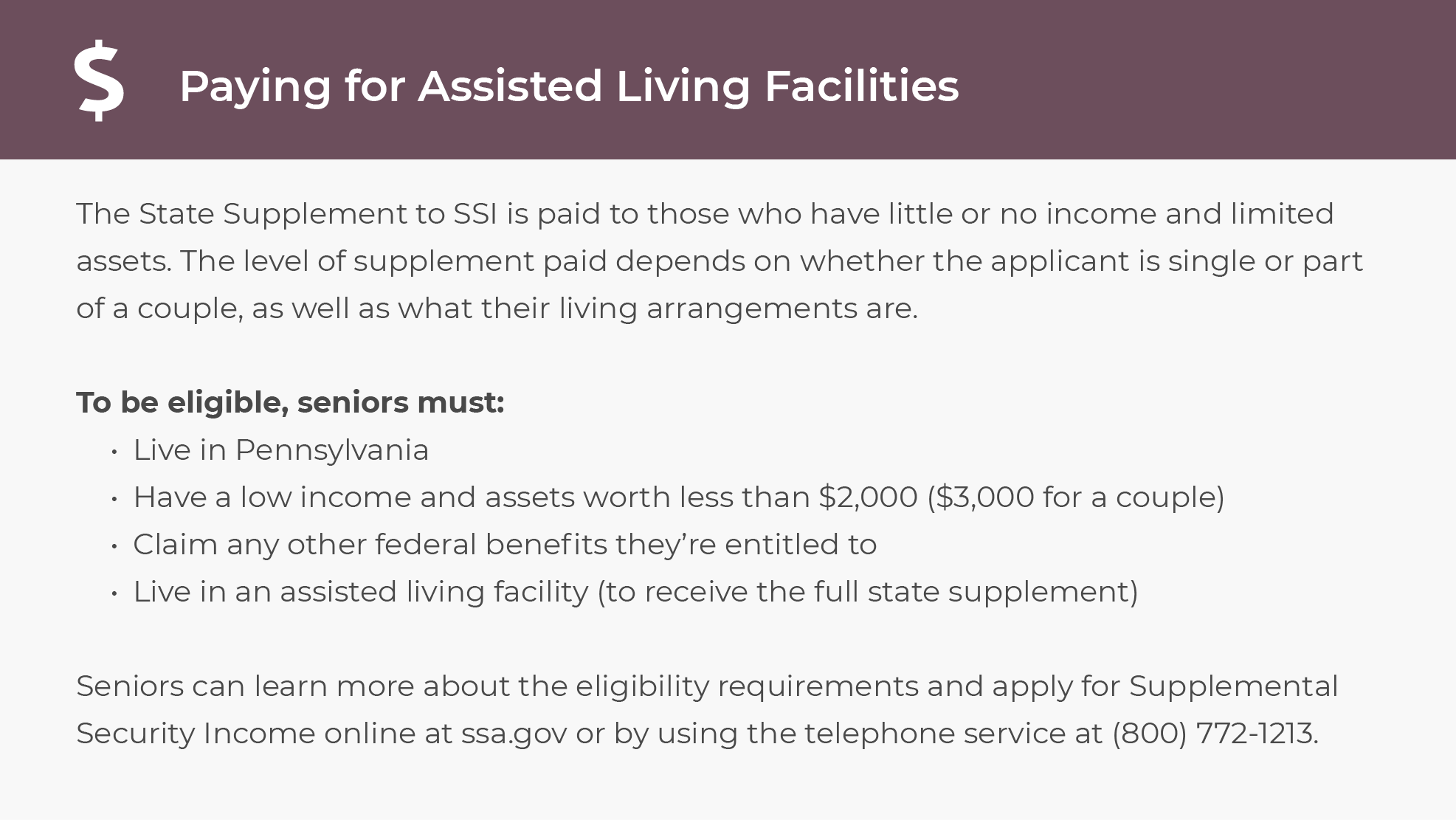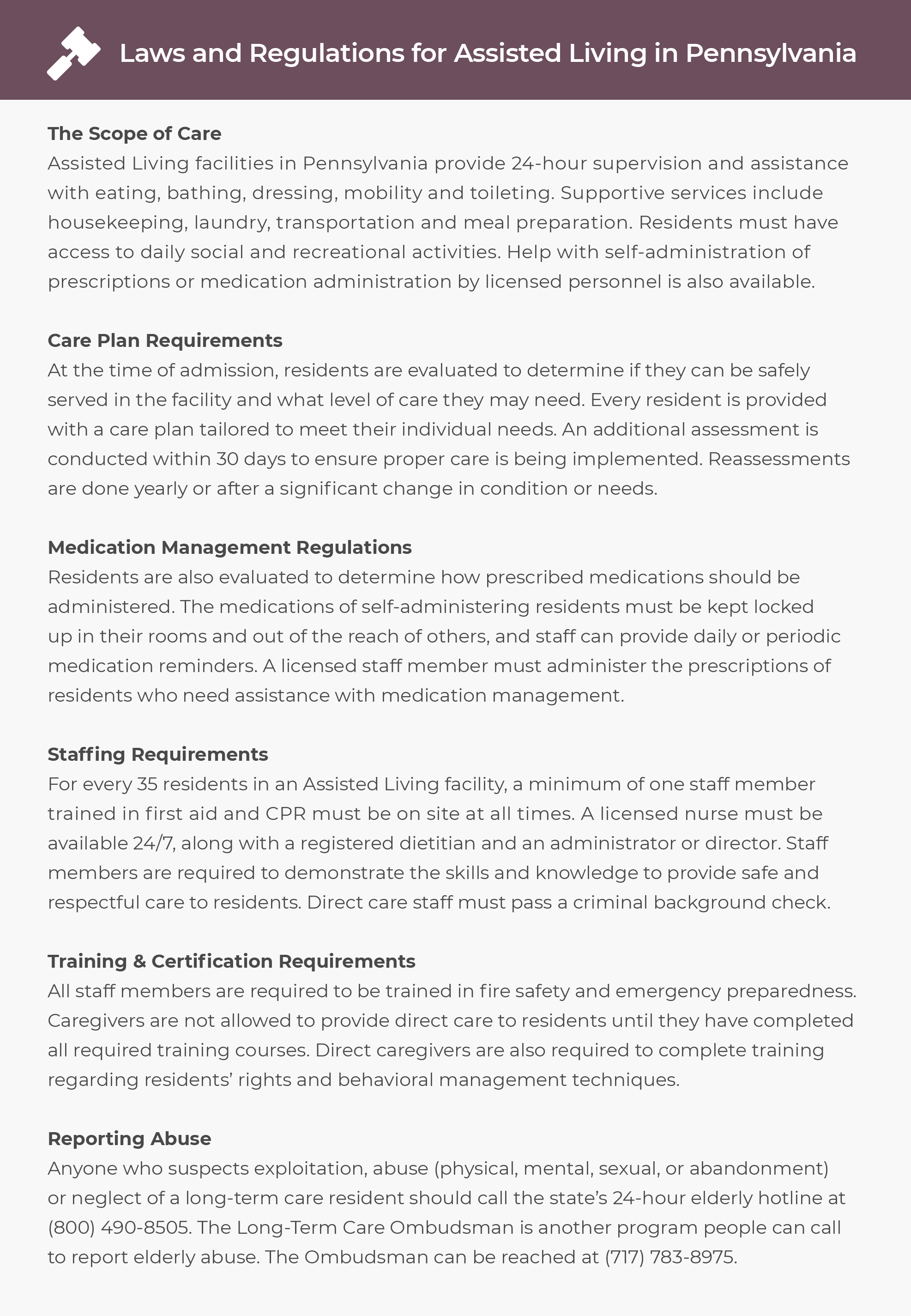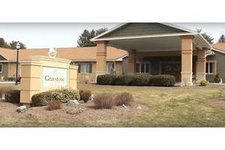Altoona is located in the southeastern region of Pennsylvania and offers beautiful parks, museums and locally owned restaurants, providing a dynamic backdrop for retirement living. The city has a large 65+ community that makes up nearly 17% of its 44,000 residents, promoting access to age-friendly social opportunities and senior services. It has a low cost of living and retiree-friendly state income tax laws, making it a viable option for those with budgetary considerations, and local hospitals, such as UPMC Altoona Station Medical Center, ensure high access to quality care.
Altoona also has numerous assisted living facilities. At these residential facilities, older adults have access to daily meals and recreational activities and get personal care services according to their individualized service plans. Assisted living also provides convenient services, such as trash removal and housekeeping, supporting a low-maintenance lifestyle. The 2021 Genworth Cost of Care Survey reports that in Altoona, facilities charge $4,030 per month, which is well below the national average.
Through this guide, readers can learn more about assisted living rates in Altoona, as well as the most common ways residents pay for services. The guide also has a resource table with local agencies and programs that serve seniors.
Hundreds of thousands of American seniors utilize assisted living, a figure that is only growing. For these seniors, assisted living combines residential housing,assistance in daily activities, and some healthcare. These communities also strive to provide an atmosphere that is comfortable and engaging for their residents… Read More >
COVID-19 restrictions and rules for Assisted Living Facilities are typically set by the state – to see the rules in your state, you can read our guide to Assisted Living in Pennsylvania. Keep in mind that there may be other policies that communities put in place to protect their residents, so you should contact your local community for more information. Additionally, you can contact your local Area Agency on Aging to learn more – find contact information here.
Older adults in Altoona pay $4,030 per month for assisted living.
Assisted living residents in Altoona facilities pay $4,030 per month for assisted living. This is a little lower than Pennsylvania’s average of $4,100 and nearly $500 lower than the national rate of $4,500.
With local assisted living facilities charging $4,030 per month for care, Altoona is one of the cheapest places in Pennsylvania for care. Even so, care costs are about $1,300 higher than in Johnstown, where care costs are the lowest in the state at $2,725. Pittsburgh is also a comparatively affordable place to obtain care, with local facilities charging $3,250. Rates in Lebanon exceed Altoona’s average at $4,768, and in East Stroudsburg, residents pay $5,126. In Philadelphia, care costs are nearly $1,700 higher than Altoona at $5,685, and in Reading, rates are the highest recorded in Pennsylvania at $5,720.
How to Get Financial Assistance for Assisted Living in Altoona

Since not everyone can afford to pay for assisted living out-of-pocket, it’s important to find alternative methods to help make assisted living more affordable. Some of these options include:
For more information about your options for making assisted living more affordable, visit our guide to Assisted Living in Pennsylvania.
| Resource | Contact | Service |
| Central Blair Senior Center | (814) 946-1235 | The local senior center has regularly scheduled activities, such as painting, beginning and advanced line dancing, French and German classes and health presentations. Visitors can also enjoy congregate meals, all of which are planned by a registered dietician. The center is open on weekdays from 8 a.m. to 4 p.m. |
| PA MEDI | (800) 783-7067 | PA MEDI is a free program that provides free health insurance counseling to Medicare-eligible individuals. Seniors can contact the free helpline to speak with an advisor about long-term care insurance, Medicare and Medicaid. Advisors can also help seniors review and understand medical bills and dispute errors. |
| Long-Term Care Ombudsman Program | (717) 783-8975 | The long-term care ombudsman helps older adults research assisted living facilities in the Altoona region, compare costs and evaluate their options for paying for monthly care. The ombudsman can also help seniors resolve care-related issues, such as unfair discharge procedures, neglect or residents’ rights violations. |
| Blair Senior Services | (800) 245-3282 | Blair Senior Services is an independent nonprofit organization that serves those aged 60 and over in the Altoona region. As the designated Area Agency on Aging, it provides free and low-cost supportive services, such as information and referrals, financial and legal advice, transportation and congregate meals. |
| Retired and Senior Volunteer Program | (800) 323-9997 | RSVP is a volunteer network for people aged 55 and over. Through this free program, seniors in Altoona can connect with volunteer opportunities in their communities, including working with children in early intervention programs, distributing food in food pantries and teaching in financial literacy workshops. |
| Blair County Veterans Affairs | (814) 693-3160 | The Blair County Veterans Affairs office provides benefits assistance to older veterans in the Altoona region, helping them access state and federal benefits that may help cover living, medical and long-term care expenses. The office also provides referrals for community-based programs, such as transportation, financial counseling and wellness services. |
| Mid Penn Legal Services | (800) 326-9177 | Mid Penn Legal Services is a nonprofit organization that provides free civil legal aid to those aged 60 and over in Altoona and the surrounding region. Seniors can contact the office for help with public benefits screenings and the application process, as well as age-related issues, such as creating wills. |
Assisted Living Facilities in the Altoona area are required to follow a set of rules and regulations that are determined at the state level. For an overview of those rules and regulations, see the information below. For more specific information, talk with your local community or Area Agency on Aging.









